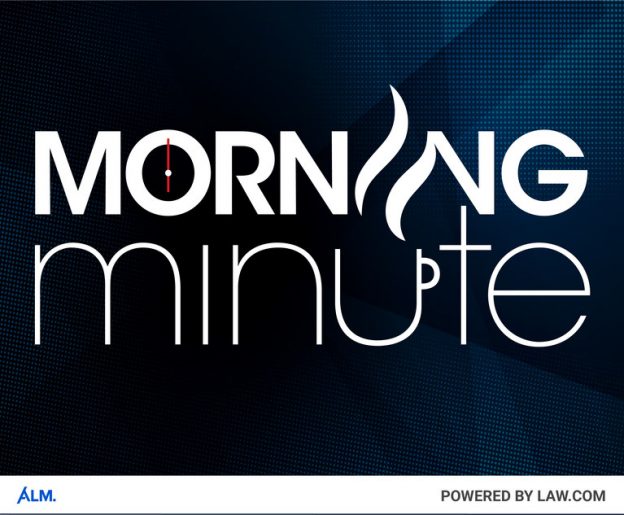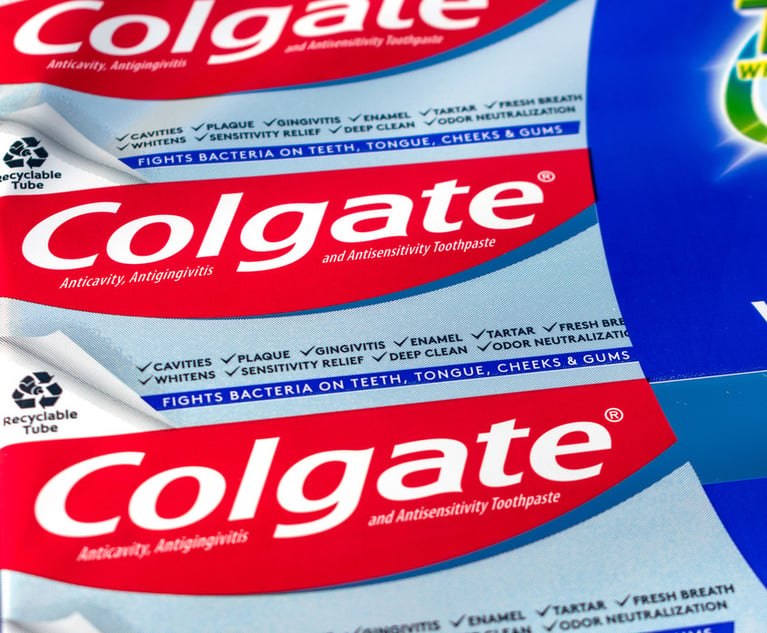How Hybrid Work Policies Reinforce 'Caste System': The Morning Minute
Want to get this daily news briefing by email? Here's the sign-up. WHAT WE'RE WATCHING SUPPORTING CASTE - Last week in this space, we told…
July 24, 2023 at 06:00 AM
4 minute read

Want to get this daily news briefing by email? Here's the sign-up.
WHAT WE'RE WATCHING
SUPPORTING CASTE - Last week in this space, we told you about how some large law firms are forcing attorneys back to the office for more days each week, having regained leverage over their talent. With that in mind, you can imagine how much flexibility firms are affording folks who never had any leverage to begin with. As Law.com's Justin Henry reports, in this new paradigm of hybrid work, not all office attendance expectations are equal. Expectations that secretarial and support staff spend the bulk of their time in the office contrast with those for their attorney colleagues, who tend to have more flexibility to determine their workplace habits for themselves. As New Jersey-based legal staff recruiter Peggy Kruza put it: "In a law firm, you either make money or you cost money. Staff are overhead; they don't have the same rights."
WHAT A.I. ATE - Until now, a significant burden in most copyright infringement cases against generative AI tools—largely from artists—has been the task of proving the model, also known as a large language model (LLM), was trained on a specific work. By ChatGPT's own admission, that challenge is somewhat overcome in the latest class action against OpenAI, brought by three authors, including comedian Sarah Silverman. If suits like this one are successful, they might create new guidelines for how LLMs are dealt with in the discovery process, e-discovery experts and attorneys told Law.com's Isha Marathe. "Coming out of [a class action] like this, I could see requirement that could offer rules of the road around [cataloging] what you are ingesting into your AI tool," said Mary Mack, CEO and chief legal technologist at the Electronic Discovery Reference Model. "Is it appropriate? Do [you] have the right to do it? Is the material you are ingesting good material? Where did come from?"
ON THE RADAR - Becton Dickinson, a medical device maker, and other defendants were slapped with a product liability lawsuit Friday in Missouri Western District Court. The suit, brought by Holman Schiavone LLC on behalf of Tyler Zumalt, centers on the defendants' PowerPort implant used to deliver drugs directly into patients' bloodstreams. According to the complaint, the defendants do not properly inform implant recipients about the risks of infection and sepsis. Counsel have not yet appeared for the defendants. The case is 4:23-cv-00513, Zumalt v. Becton, Dickinson and Company et al. Stay up on the latest state and federal litigation, as well as the latest corporate deals, with Law.com Radar.
EDITOR'S PICKS
|
|
This content has been archived. It is available through our partners, LexisNexis® and Bloomberg Law.
To view this content, please continue to their sites.
Not a Lexis Subscriber?
Subscribe Now
Not a Bloomberg Law Subscriber?
Subscribe Now
NOT FOR REPRINT
© 2025 ALM Global, LLC, All Rights Reserved. Request academic re-use from www.copyright.com. All other uses, submit a request to [email protected]. For more information visit Asset & Logo Licensing.
You Might Like
View All
How This Dark Horse Firm Became a Major Player in China

Colgate Faces Class Actions Over ‘Deceptive Marketing’ of Children’s Toothpaste

Internal Whistleblowing Surged Globally in 2024, So Why Were US Numbers Flat?
6 minute read
Trending Stories
- 1We the People?
- 2New York-Based Skadden Team Joins White & Case Group in Mexico City for Citigroup Demerger
- 3No Two Wildfires Alike: Lawyers Take Different Legal Strategies in California
- 4Poop-Themed Dog Toy OK as Parody, but Still Tarnished Jack Daniel’s Brand, Court Says
- 5Meet the New President of NY's Association of Trial Court Jurists
Who Got The Work
J. Brugh Lower of Gibbons has entered an appearance for industrial equipment supplier Devco Corporation in a pending trademark infringement lawsuit. The suit, accusing the defendant of selling knock-off Graco products, was filed Dec. 18 in New Jersey District Court by Rivkin Radler on behalf of Graco Inc. and Graco Minnesota. The case, assigned to U.S. District Judge Zahid N. Quraishi, is 3:24-cv-11294, Graco Inc. et al v. Devco Corporation.
Who Got The Work
Rebecca Maller-Stein and Kent A. Yalowitz of Arnold & Porter Kaye Scholer have entered their appearances for Hanaco Venture Capital and its executives, Lior Prosor and David Frankel, in a pending securities lawsuit. The action, filed on Dec. 24 in New York Southern District Court by Zell, Aron & Co. on behalf of Goldeneye Advisors, accuses the defendants of negligently and fraudulently managing the plaintiff's $1 million investment. The case, assigned to U.S. District Judge Vernon S. Broderick, is 1:24-cv-09918, Goldeneye Advisors, LLC v. Hanaco Venture Capital, Ltd. et al.
Who Got The Work
Attorneys from A&O Shearman has stepped in as defense counsel for Toronto-Dominion Bank and other defendants in a pending securities class action. The suit, filed Dec. 11 in New York Southern District Court by Bleichmar Fonti & Auld, accuses the defendants of concealing the bank's 'pervasive' deficiencies in regards to its compliance with the Bank Secrecy Act and the quality of its anti-money laundering controls. The case, assigned to U.S. District Judge Arun Subramanian, is 1:24-cv-09445, Gonzalez v. The Toronto-Dominion Bank et al.
Who Got The Work
Crown Castle International, a Pennsylvania company providing shared communications infrastructure, has turned to Luke D. Wolf of Gordon Rees Scully Mansukhani to fend off a pending breach-of-contract lawsuit. The court action, filed Nov. 25 in Michigan Eastern District Court by Hooper Hathaway PC on behalf of The Town Residences LLC, accuses Crown Castle of failing to transfer approximately $30,000 in utility payments from T-Mobile in breach of a roof-top lease and assignment agreement. The case, assigned to U.S. District Judge Susan K. Declercq, is 2:24-cv-13131, The Town Residences LLC v. T-Mobile US, Inc. et al.
Who Got The Work
Wilfred P. Coronato and Daniel M. Schwartz of McCarter & English have stepped in as defense counsel to Electrolux Home Products Inc. in a pending product liability lawsuit. The court action, filed Nov. 26 in New York Eastern District Court by Poulos Lopiccolo PC and Nagel Rice LLP on behalf of David Stern, alleges that the defendant's refrigerators’ drawers and shelving repeatedly break and fall apart within months after purchase. The case, assigned to U.S. District Judge Joan M. Azrack, is 2:24-cv-08204, Stern v. Electrolux Home Products, Inc.
Featured Firms
Law Offices of Gary Martin Hays & Associates, P.C.
(470) 294-1674
Law Offices of Mark E. Salomone
(857) 444-6468
Smith & Hassler
(713) 739-1250











